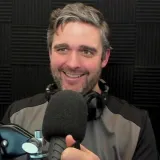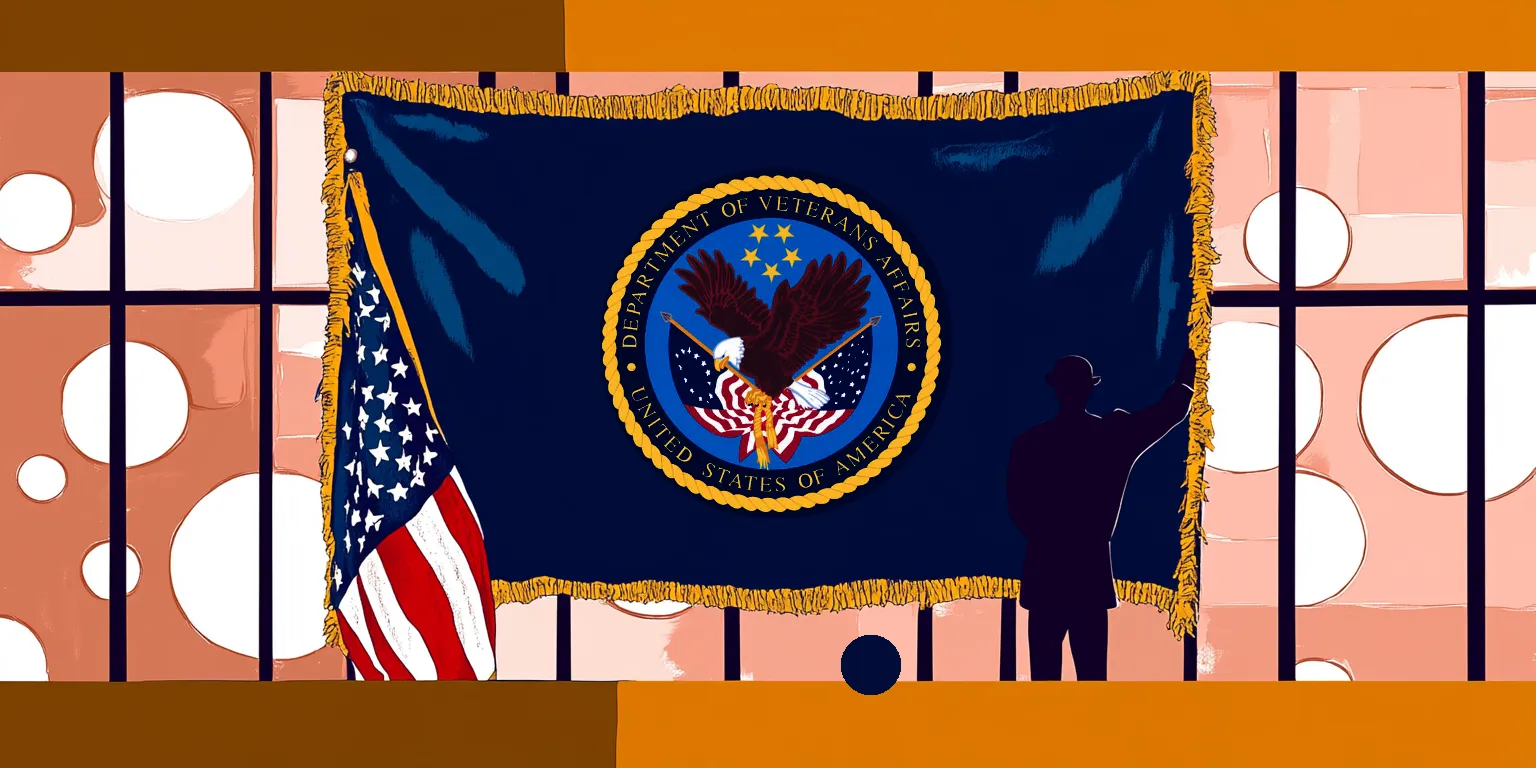In this week’s Psychedelic News Roundup, the Drug Enforcement Administration (DEA) is advocating for a notable increase in the production quotas of certain marijuana compounds and psychedelics like psilocybin and ibogaine for 2023, aiming to propel research and clinical trials. Concurrently, Cybin Inc. reports encouraging Phase II interim results for its proprietary psilocybin analog, CYB003, in treating Major Depressive Disorder (MDD). Meanwhile, a study delves into individuals’ expectations of psilocybin’s antidepressant effects based on their personal experiences. In the sphere of bereavement care, psychedelic-assisted psychotherapy (PAP) is emerging as a potential alternative for individuals facing the loss of a loved one. Lastly, on the legislative front, an amendment proposed by Democratic Representatives seeks to shield state medical psilocybin laws from federal interference, reflecting a broader trend toward recognizing the therapeutic potential of psychedelics. Other news includes a new psychedelic trend among professional golfers seeking better mental well-being and health.
DEA Advocates for Elevated Psychedelic and Marijuana Compound Production in 2023

Originally covered by Marijuana Moment, the Drug Enforcement Administration (DEA) is urging a significant augmentation in the 2023 production quotas for specific marijuana compounds and psychedelics, like psilocybin and ibogaine, to bolster research and clinical trials surrounding these substances. The proposed adjustments include nearly doubling the production of psilocybin, psilocin, and delta-9 THC from the initial levels set for this year, a fivefold increase for ibogaine, and a massive escalation for “other tetrahydrocannabinol” (one of 118 the major psychoactive components in cannabis) from 15,000 grams to 350,000 grams.
This initiative follows the DEA’s previous amendments to the initial quota for various controlled substances late last year. The newly proposed quotas, such as 15,000 grams for psilocybin up from 8,000 grams and 24,000 grams for psilocin, doubling the prior 12,000-gram quota, underscore a sustained interest in psychedelic research over time. Concurrently, the DEA is maintaining its 6.7 million-gram quota for marijuana but is advocating for an increase in delta-9 THC manufacturing from 384,460 grams to 628,460 grams, a 63% rise.
The proposed increases are now subject to a 30-day public commentary period, coinciding with an ongoing administrative review on the scheduling status of cannabis following a recommendation from the U.S. Department of Health and Human Services. This scenario unfolds as experts anticipate potential federal approval for certain psychedelics like psilocybin and MDMA for the treatment of serious mental health conditions. Amidst these developments, the DEA’s revised quotas reflect the estimated medical, scientific, and research needs of the U.S., showcasing the agency’s support for research with Schedule I controlled substances.(1)
Keep Up with Uncensored Psychedelic Trends
Join our newsletter at Psychedelics Uncensored.
We respect and protect your privacy. By subscribing your info will be subject to our privacy policy . Unsubscribe easily at any time
Merging Fairways with Psychedelics: Golfing’s New Course

Coming to us from GolfDigest, professional golfers are trying an unconventional new tool to boost their performance as players explore psychedelics like ayahuasca and psilocybin to enhance mental clarity and address broader mental health concerns. Notable figures within and beyond the golfing community are gradually opening up about their psychedelic experiences, bringing to light a subject that has long been shrouded in stigma and skepticism.
Amidst the tranquility of the golf course, a ripple of change is emerging as professional golfers like D.J. Trahan advocate for the benefits of plant medicine. With retreats being organized to combine traditional therapies with golf, and players crediting psychedelics as the key to improving their mental health, the focus is shifting from mere performance enhancement to a holistic approach towards overall well-being. At the core of this narrative is the potential of psychedelics to unlock a deeper understanding of the human psyche, which could be crucial in navigating the high-pressure realm of professional sports.
As psychedelic use gradually intertwines with golfing traditions, it opens up new avenues of exploration, both on and off the field. The entry of psychedelic medicine into the golf world epitomizes a broader shift in sports culture, nudging us towards an era where mental well-being is as pivotal as physical prowess.(2)
Unprecedented Positive Phase II Results for Psilocybin in Major Depressive Disorder Revealed by Cybin

Cybin Inc., a clinical-stage biopharmaceutical company, recently announced remarkable Phase II interim results for CYB003, its proprietary psilocybin analog, in treating Major Depressive Disorder (MDD). The data revealed that a single 12 mg dose of CYB003 provided a rapid, robust, and clinically significant reduction in depression symptoms three weeks post-administration, showcasing an unprecedented mean 14-point reduction on the Montgomery-Asberg Depression Rating Scale (MADRS). This contrasts sharply with the average improvement of 1.82 points seen in current standard-of-care antidepressants, selective serotonin reuptake inhibitors (SSRIs), as per pooled data from 232 industry studies submitted to the U.S. Food and Drug Administration.
Keep Up with Psychedelic Trends
Get uncensored psychedelic news, events, and updates. Join Psychedelics Uncensored!
We respect and protect your privacy. By subscribing your info will be subject to our privacy policy . Unsubscribe easily at any time
The interim results also highlighted a robust response and remission rate three weeks post single dose administration, with 53.3% of patients responding and 20% of patients in remission (no longer meeting the clinical definition of depression), versus 0% for placebo. The safety profile of CYB003 at a 12 mg dose was favorable, with no treatment-related serious adverse events (aka a bad trip) reported. The full topline data is anticipated to be released in Q4 2023, and a larger international, multisite Phase III trial is planned for early 2024 to further evaluate the safety and efficacy of CYB003 in individuals suffering from MDD.
This development is not only a significant stride for Cybin but also for the broader psychedelics sector, as it demonstrates a substantial improvement in depressive symptoms with a single dose, advancing the mission to enhance the treatment landscape across various mental health disorders.(3)
Research Highlights Expectations on Psilocybin’s Antidepressant Effects Tied to Emotional and Ego-Dissolving Experiences

As covered by PsyPost, a study published in the Journal of Humanistic Psychology underscores the strong expectations people hold regarding the antidepressant effects of psilocybin, especially among those who’ve had mystical experiences, emotional breakthroughs, and ego dissolution during psilocybin sessions. The research conducted by a team led by psychology professor Mitch Earleywine from the University at Albany, involved 551 participants aged between 18 and 73, all of whom had used psilocybin at least once. The study aimed to gauge participants’ expectations concerning the antidepressant impacts of psilocybin-assisted therapy based on their personal experiences with the substance.
The findings revealed a significant link between subjective effects like mystical experiences, emotional breakthroughs, and ego dissolution and participants’ expectations of psilocybin’s antidepressant benefits. Particularly, participants anticipated that psilocybin therapy would significantly impact symptoms related to hope, happiness, and fear while expecting lesser benefits for symptoms like motivation and sleep disturbances. Additional analysis further indicated that emotional breakthroughs and ego dissolution were significant predictors of expected antidepressant effects, even after controlling for age and lifetime hallucinogen use.
Despite the insightful findings, the study has its limitations, including a lack of diversity in the sample and reliance on self-reported data, which can be subject to biases. The findings echo a previous study concerning cannabis-assisted psychotherapy, showing similar symptom-specific expectancies. This study sheds light on the potential of psilocybin in addressing emotional and cognitive symptoms of depression, albeit within a controlled, supportive environment under professional guidance. The results pave the way for more comprehensive, diversified, and objective research to explore the antidepressant potentials of psilocybin-assisted therapy further.(4)
Psychedelic-Assisted Psychotherapy: A Glimmer of Hope in Bereavement Care

In an article published by Hospice News, psychedelic-assisted psychotherapy (PAP) is making inroads in the domain of bereavement care, offering a potential alternative for those grappling with the loss of a loved one. Ryan Moss, Chief Science Officer at Filament Health Corp, underscores the need for cautious assessment of psychedelic utilization among grieving individuals to ascertain quality outcomes. PAP therapies can manifest as a double-edged sword; for some, it may foster a positive milieu to address emotions during grieving, while for others, it could exacerbate feelings of loss and sadness.
The structured approach of PAP, often conducted under the guidance of medical and therapeutic professionals, has shown promise in assisting individuals through their grieving journey. This process includes preparatory sessions, the psychedelic session itself, and subsequent consultations to integrate the psychedelic experience within the grief healing process. The effectiveness of such a structured approach is highlighted as superior compared to unsupervised psychedelic use. However, Moss stresses the necessity of further research to deepen the understanding of psychedelic utility in grief support, especially to discern its effectiveness in treating prolonged grief and other psychological conditions.
Research in this realm is budding, with some studies exhibiting encouraging results. For instance, a study revealed that 42% of recreational psychedelic users noted a reduction in symptoms of complicated grief post-bereavement. Another study showcased a significant positive impact on the grieving process among individuals who participated in an indigenous ayahuasca ceremony post-loss. These preliminary findings hint at a promising future where PAP, administered in specialized clinics under professional guidance, could be recommended to individuals facing prolonged grief, thereby ushering in a novel, therapeutic avenue in bereavement care. Yet, more robust research and a pool of trained health professionals are essential to realize this potential fully and safely.(5)

As reported by Marijuana Moment and the Schedule Six Foundation, Democratic Representatives Robert Garcia (D-CA) and Earl Blumenauer (D-OR) introduced an amendment aiming to restrict federal funds from being used to interfere with state and local laws allowing medical use and sale of psilocybin. The proposed amendment is attached to a large-scale spending bill covering Commerce, Justice, Science, and Related Agencies (CJS), awaiting the House Rules Committee’s green light for a floor vote.
This initiative follows a separate legislation introduced by the duo in September to prevent federal interference in jurisdictions legalizing the psychedelic substance. The new amendment mirrors an existing rider, renewed annually since 2014, which prevents federal interference in state medical marijuana programs. The representatives aim to extend these protections to psilocybin, reflecting a progressive stance towards legalization and acknowledgment of the therapeutic benefits of both cannabis and psychedelics.
The amendment underscores a growing trend of psychedelic legalization at the state level despite the lack of explicit authorization of psilocybin as a therapeutic substance akin to medical marijuana. States like Colorado and Oregon have adopted more open-ended laws, recognizing the therapeutic potential of psilocybin without stringent regulatory requirements for patient status verification.
The proposed legislation represents a novel approach amidst a broader push to reform drug policy, notably regarding cannabis and psychedelics. The Rules Committee has previously allowed GOP-led psychedelic measures to advance, showcasing a degree of bipartisan support for exploring the therapeutic potential of substances like psilocybin and MDMA, especially in aiding veterans and broadening research scope. While the amendment awaits further action, it signifies a potential shift in federal policy towards a more progressive stance on drug legalization, aligning with state-level movements to recognize and regulate the medical use of psychedelics.(6)
The unfolding developments in psychedelic research, therapy, and legislative considerations underscore a progressive shift in acknowledging the therapeutic and medicinal potential of psychedelics. From the DEA’s push for increased production quotas to facilitate research, promising clinical trial data from Cybin Inc., and the exploration of psilocybin’s antidepressant effects, to the emerging role of PAP in bereavement care, each facet contributes to a broader narrative advocating for a nuanced understanding and acceptance of psychedelic medicine. As research continues to unveil the benefits and legislative bodies deliberate on the regulatory frameworks, the trajectory toward integrating psychedelics into medical and therapeutic domains continues to gain steady momentum.
Sources

1. Jaeger, K. (2023, October 31). DEA Calls For Massive Increases In Psilocybin, Ibogaine And THC Manufacturing This Year To Meet Research Demands. Marijuana Moment. https://www.marijuanamoment.net/dea-calls-for-massive-increases-in-psilocybin-ibogaine-and-thc-manufacturing-this-year-to-meet-research-demands/
2. Why serious players are dosing psychedelics like mushrooms and ayahuasca. (n.d.). GolfDigest.com. Retrieved November 2, 2023, from https://www.golfdigest.com/story/why-serious-players-are-doing-psychedelics-like-mushrooms-and-ayahuasca
3. Cybin – Cybin Announces Unprecedented Positive Phase 2 Interim Data for CYB003 in Major Depressive Disorder Meeting Primary Efficacy Endpoint with Rapid and Significant Improvements in Depression Symptoms After Single Dose. (n.d.). https://ir.cybin.com/investors/news/news-details/2023/Cybin-Announces-Unprecedented-Positive-Phase-2-Interim-Data-for-CYB003-in-Major-Depressive-Disorder-Meeting-Primary-Efficacy-Endpoint-with-Rapid-and-Significant-Improvements-in-Depression-Symptoms-After-Single-Dose/default.aspx
4. Dolan, E. W. (2023, October 31). Emotional breakthroughs and ego dissolution boost expectations of psilocybin’s antidepressant effects. PsyPost. https://www.psypost.org/2023/10/emotional-breakthroughs-and-ego-dissolution-boost-expectations-of-psilocybins-antidepressant-effects-214278
5. Vossel, H. (2023, October 31). The Potential of Psychedelics in Bereavement Care. Hospice News. https://hospicenews.com/2023/10/31/the-potential-of-psychedelics-in-bereavement-care/?utm_campaign=li&utm_source=linkedin&utm_medium=Hospice+News&utm_content=1698924000
6. Jaeger, K. (2023, November 2). House Committee Will Consider Protecting State Medical Psilocybin Laws From Federal Interference Under New Amendment. Marijuana Moment. https://www.marijuanamoment.net/house-committee-will-consider-protecting-state-medical-psilocybin-laws-from-federal-interference-under-new-amendment/
This material is not intended as a replacement or substitute for any legal or medical advice. Always consult a medical professional about your health needs. Psychedelics are widely illegal in the United States, and readers should always be informed about local, state, and federal regulations regarding psychedelics or other drugs.

 David Connell
David Connell






 Ross Dillon
Ross Dillon 
